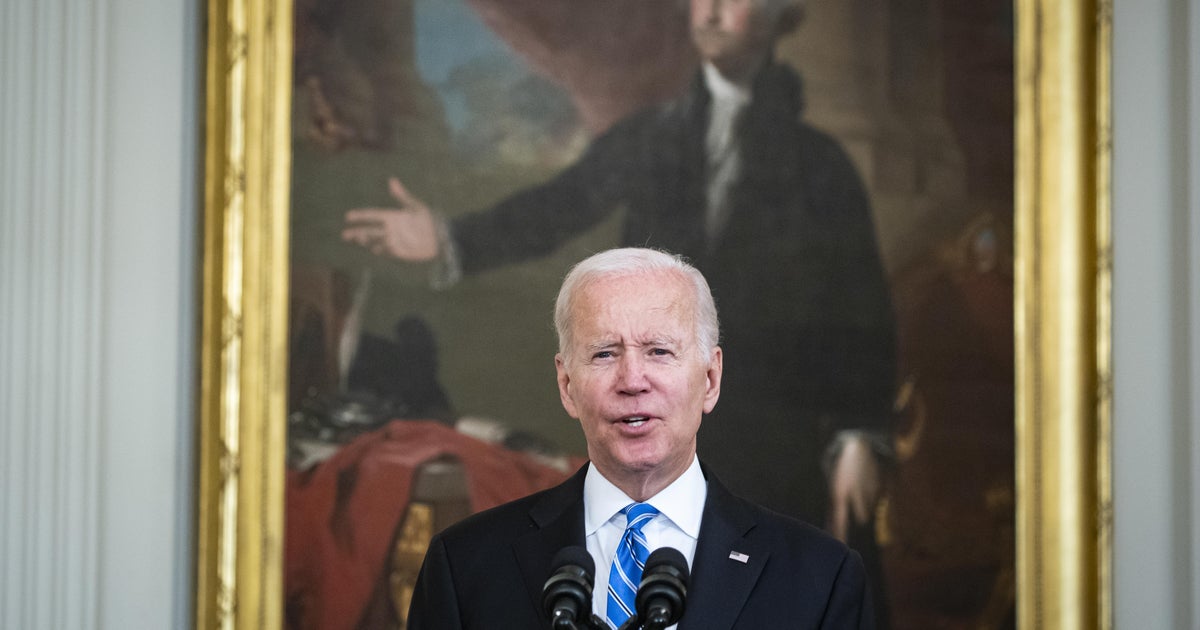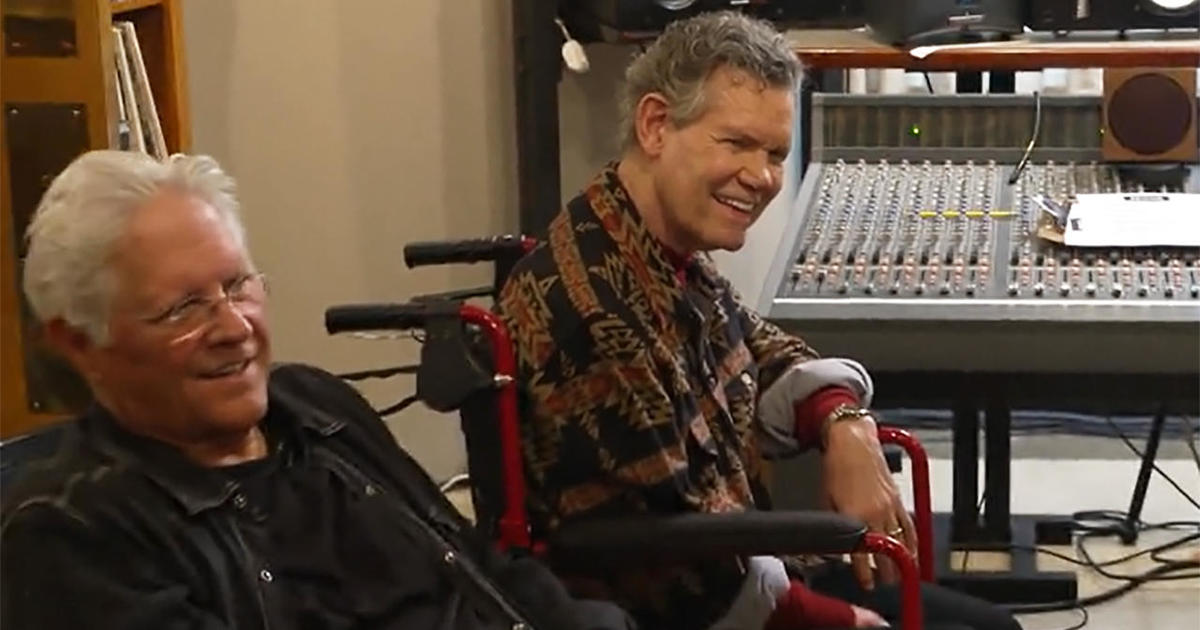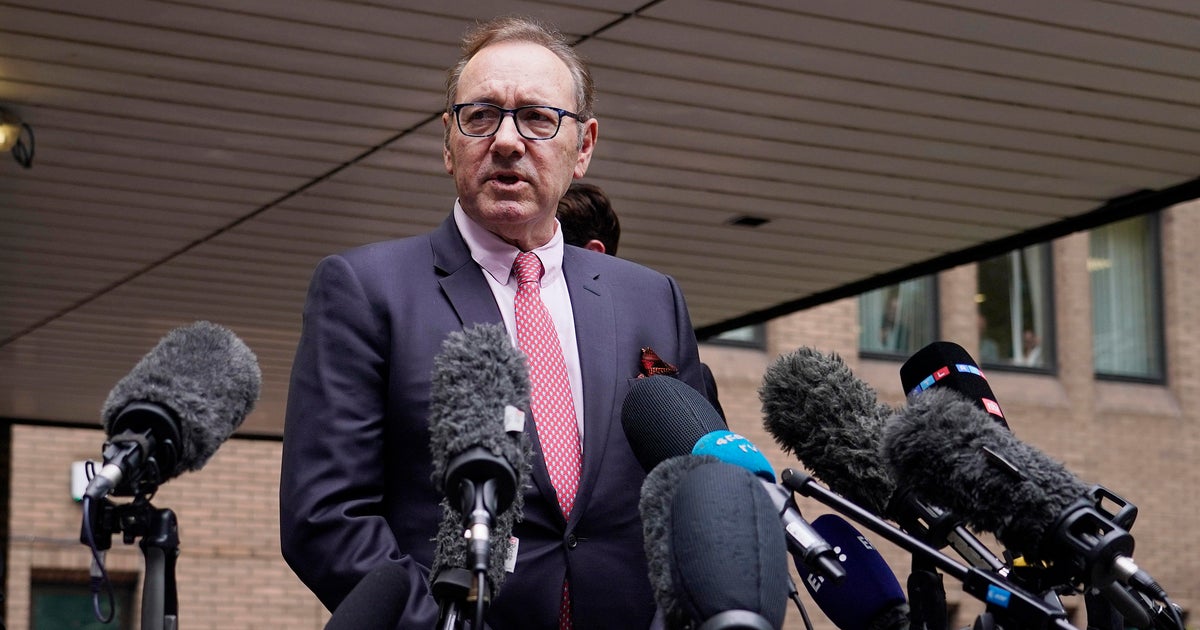Energy Secretary Jennifer Granholm discusses Congress and the fate of Biden's agenda - "The Takeout"
While two factions of President Biden's own party are warring over his domestic legislative priorities, contained in two separate bills, U.S. Energy Secretary Jennifer Granholm said she believes Senators Joe Manchin and Kyrsten Sinema, two moderate Democrats, will ultimately vote for the massive bill championed by progressives and aimed at bolstering the nation's "social infrastructure."
"I think they will," Granholm told CBS News chief Washington correspondent Major Garrett in this week's episode of "The Takeout" podcast. "[The final bill] may not look exactly as it looks right now, but I believe for their constituents they want to see something significant happening, too."
Right now, that bill is estimated to cost $3.5 trillion and would be offset by tax hikes on the wealthy.
Congressional moderates are facing off with House progressives over the legislation. The progressives want the reconciliation bill, which has only Democratic support, to be voted on before a separate roads-and-bridges infrastructure bill that is moving through Congress at the same time. Party leaders and moderates want to see the infrastructure bill receive a vote first, and that was supposed to happen Thursday but was ultimately delayed. Granholm, too, seemed to think that the infrastructure bill should be up first.
"I'd say both are really important. Let's vote when we can and get them through. It doesn't diminish the importance of the soft infrastructure part, the reconciliation bill, if we do the infrastructure bill first. That's still going to happen," Granholm said.
Granholm, the second woman to lead the Energy Department, also said that she believes that Congress will come together on the debt ceiling. At this point, the U.S. has perhaps a couple of weeks before the nation goes into its first ever default if Congress does not act. Republicans are refusing to support raising the ceiling and say Democrats should include the new debt limit in their reconciliation bill, which will only require 50 votes to pass the Senate, so that it can be passed without Republican votes.
"Despite the wild partisanship that exists in Washington, I do believe that there are enough reasonable people to be able to get this across the finish line," Granholm said, though she recalled that when she was governor of Michigan, the state government shut down over budget deficit issues. "Exhibit A of that is that we had reasonable people come together to agree on an infrastructure bill of both parties. So, let's try to keep that in mind."
The bipartisan infrastructure bill has some funding to help boost renewable energy to help combat climate change.
"Every one of these extreme climate events is an exclamation point for why we have to act on climate. As of right now, one in three Americans just this past summer has experienced an extreme weather event, and if we don't take care of it, we're going to continue to pay these exponentially growing costs of cleaning up after these extreme weather events," Granholm said. "It is simply not acceptable to stay where we are."
The infrastructure bill would provide $7.5 billion for the expansion of plug-in electric vehicle chargers. Granholm said much of the funding would go to building chargers that would help increase charging accessibility in low-income and rural areas, in hopes of lowering barriers to purchasing electric vehicles.
"This is what the infrastructure plan has got planned," Granholm said. "it's a multi-billion dollar investment in creating 250,000 charging stations across the nation that the president wanted."
Garrett also asked her if the fate of Mr. Biden's presidency is at stake in the coming weeks if both pieces of legislation fail.
"No, I don't agree," Granholm responded. "I do think that it's very important to get his agenda through. But I also think that most of us have a memory as long as that of a gnat... It is really important, no doubt, to get these very significant bills through, especially since we don't know what's going to happen politically in 2022. And you want to have something solid in that first two years of an administration."
Highlights
Paying for Biden's infrastructure bill: "The president does not want to jack up deficits and debt. He wants to ensure it's paid for and it's going to be paid for by those who have benefited the most from our country's largesse. Those who are the wealthiest, those who have the corporations who have not paid their fair share, corporations who have paid zero in taxes. Come on, that's not right.... We should all be contributing, and that's what the president believes. So, but people who make under $400,000 a year, to be very clear, will not see one dime in tax increases."
Manchin and Sinema vote prediction: "I think they will. It may not look exactly as it looks right now, but I believe for their constituents they want to see something significant happening too."
Biden presidency at stake? "No, I don't agree. I do think that it's very important to get his agenda through. But I also think that most of us have a memory as long as that of a gnat... It is really important, no doubt, to get these very significant bills through, especially since we don't know what's going to happen politically in 2022. And you want to have something solid in that first two years of an administration."
U.S. possibility of default? "I don't think that's going to happen this time because we do have the president's party in control, even albeit slim of both chambers, and reasonable folks on both sides of the aisle who know how devastating it would be for financial markets, for the reputation of the United States globally, not to mention the functioning of government for critical services that people need. So this is why I do not think it's going to happen."
Institutional racism: "I would say that it is almost easier to amend the stuff between the covers of a law book statutes than it is to amend the stuff between the ears. And when people are afraid, they do horrible things, afraid of loss, afraid of whatever. And I do think that. That as I'll speak for myself, I feel like as a white American, I have an extra responsibility to make sure that in my own realm and to the extent that I have a voice that I speak and in and in a way that calls other white people to understand their responsibility, not that white people alive today are to blame for what happened during the civil rights movement, but there is a a scar on our soul. And we all need to play a role in healing of it. Particularly, I think there is a special responsibility on the part of white Americans to do that."
For more of Major's conversation with Granholm, download "The Takeout" podcast on Art19, iTunes, Spotify, Google Podcasts, and Stitcher. New episodes are available every Friday morning. Also, you can watch "The Takeout" on CBSN Friday at 5pm, 9pm, and 12am ET and Saturday at 1pm, 9pm, and 12am ET. For a full archive of "The Takeout" episodes, visit www.takeoutpodcast.com. And you can listen to "The Takeout" on select CBS News Radio affiliates (check your local listings).
Producers: Arden Farhi, Jamie Benson, Jacob Rosen, Sara Cook and Eleanor Watson
CBSN Production: Eric Soussanin and Julia Boccagno
Show email: TakeoutPodcast@cbsnews.com
Twitter: @TakeoutPodcast
Instagram: @TakeoutPodcast
Facebook: Facebook.com/TakeoutPodcast



